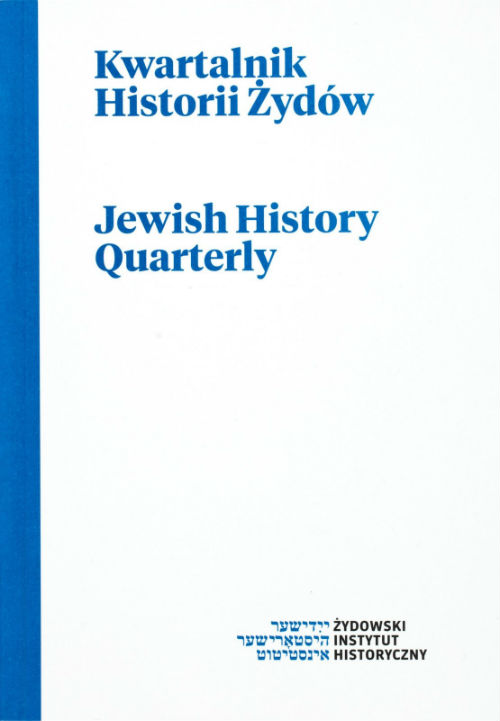Zarach Zarachowicz i jego wyniesienie na urząd hazzana w Haliczu w 1929 roku. Przyczynek do dziejów liturgii karaimskiej
Zarach Zarachowicz and his Elevation to the Office of Halicz Hazzan in 1929. A Contribution to the History of Karaite Liturgy
Author(s): Stefan GąsiorowskiSubject(s): History
Published by: Żydowski Instytut Historyczny
Keywords: Karaites; Halicz; kenesa; rites; hazzan; hakham
Summary/Abstract: Zarach Zarachowicz was born in Halicz in 1890. He was the son of Mojsz and Estera neé Eszwowicz, members of the local Karaite community, whose origins reputedly go back to the mid-13th century. In 1915, Zarachowicz left Halicz for Simferopol in the Crimea. This is where he went to a Karaite religious school. After World War I he returned to Halicz, got a job in the District Court and engaged in the activity of the Karaite community. In 1919 he was elected member of its board and secretary. He also began to engage in Karaite cultural activities. He was one of the founders, editors and contributors to „Myśl Karaimska”, a scientific, literary and social periodical which appeared in Vilnius from 1924 to 1939. In 1929, Seraj Markowicz Szapszał, the hakham (superior) of the Karaites in Poland, appointed Zarachowicz a junior hazzan in Halicz. The ceremony of presenting the appointment to Karaite clergyman and the new hazzan’s first service took place in the kenesa in Halicz on December 21, 1929. A detailed account of the occasion was preserved in the form of a letter from Halicz hazzan Izaak Abrahamowicz to Szapszał. Despite his pastoral duties, Zarachowicz continued to be active in the social and cultural field. He became a member of the board of the Society of of Friends of Karaite History and Literature, set up in Vilnius, and was also member of the editorial board of the periodical „Myśl Karaimska”. He also published his articles in the Karaim-language periodical „Karaj Awazy” published in Łuck. From 1933 he acted as senior hazzan in Halicz. After the World War II Zarachowicz continued to work in the Halicz court as clerk. However, he was persecuted by the Soviet authorities for holding the office of a Karaite clergyman. On December 11, 1952 he took his life by plunging into the Dniester, leaving a wife and three children.
Journal: Kwartalnik Historii Żydów
- Issue Year: 244/2012
- Issue No: 04
- Page Range: 573-581
- Page Count: 9
- Language: Polish

